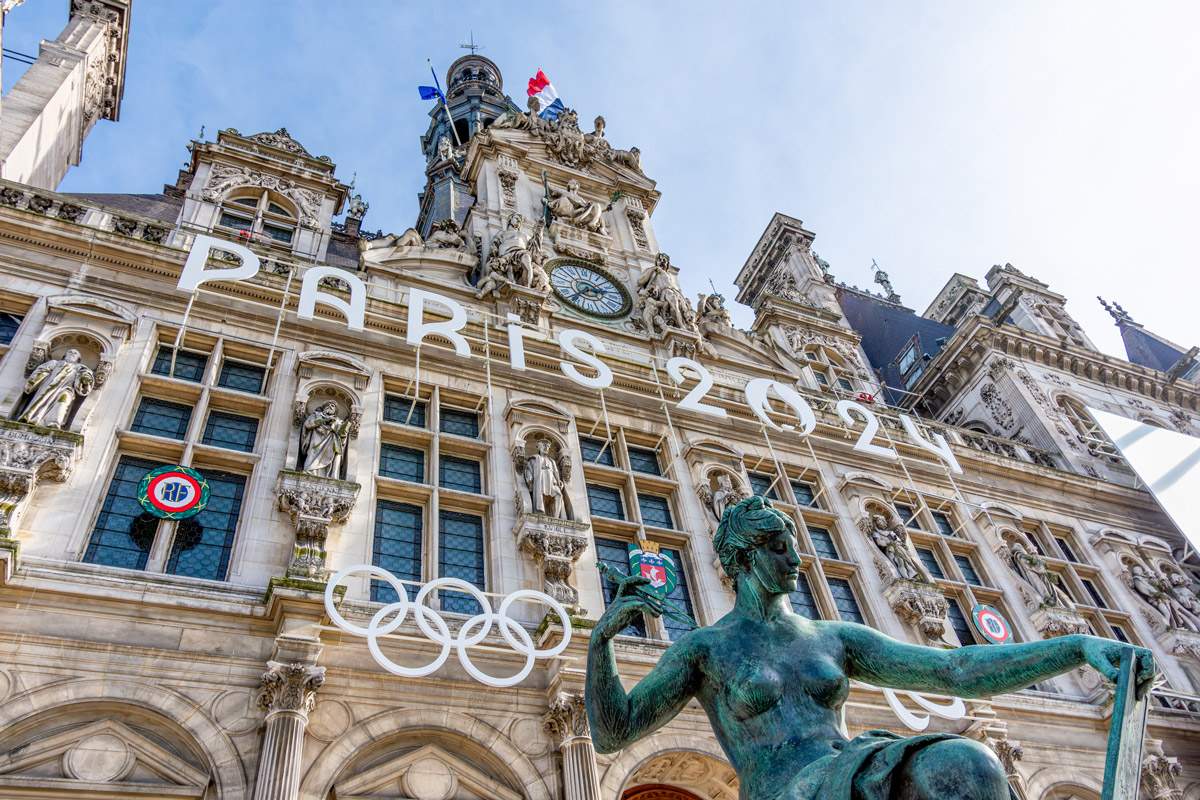The Games will be the largest sporting event in history to serve beverages in reusable packaging, potentially replacing millions of single-use cups that would otherwise have been thrown away or littered. This is great news for the oceans because reusable packaging is one of the most effective ways to tackle the plastic pollution crisis. A 10 percentage-point increase in reusable beverage packaging globally by 2030 can eliminate over 1 trillion single-use plastic bottles and cups and prevent up to 153 billion of these containers from polluting our world’s waterways and seas.
Importantly, with the world watching, Paris 2024 presents an unparalleled opportunity to put the spotlight on reuse, raise awareness about the environmental benefits of reusable packaging, and increase consumer demand for more of it. Earlier this month, with support from Break Free From Plastic, Oceana, and six other NGOs, over one hundred sports organizations and elite athletes from around the world took advantage of this opportunity, calling on leading beverage companies and sports sponsors to increase reusable packaging in place of single-use plastic. This request was made through a letter sent to the CEOs of the Coca-Cola Company, PepsiCo, and Coca-Cola’s largest bottler – Coca-Cola Europacific Partners (CCEP). Over 50 Olympians, Paralympians, world champions, and world record holders supported the letter, including 23 athletes who are competing at the Paris 2024 Games.
The letter sent a powerful message against single-use plastic from the sport community. Specifically, the athletes asked the companies for three commitments. The first is to make reuse an option for all their customers around the world and to dramatically increase reusable packaging by 2030. This request is entirely feasible. Coca-Cola and Pepsi, and some of their bottlers already have existing large-scale refillable bottling operations in many parts of the world and refillable bottles are both common and popular in some countries including Chile, Ethiopia, Germany, Mexico, and the Philippines. Therefore, both Coca-Cola and Pepsi have the technology, knowledge, and experience within their global operations network to establish or expand refillable bottling capacity in every country worldwide. These companies were both largely responsible for the shift within the beverage sector away from refillable bottles to single-use plastic over the past five decades, and so they are capable of driving the shift back. Importantly, two years ago, both companies made commitments to increase reusable packaging by 2030 — each by about ten percentage-points. Coca-Cola pledged to reach 25% reuse by 2030 (from 16%) and Pepsi pledged to reach 20% by 2030 (from 10%). Neither have yet to report any progress towards meeting these targets.
Secondly, the athletes called for the companies to make future Olympics and other sporting events run on reuse rather than single use. Key to this request is the specification that reusable packaging should replace single-use packaging. This is necessary to ensure that reusable packaging achieves its objective of maximally reducing packaging waste – and pollution. To most, this would seem an obvious and unnecessary specification but unfortunately at Paris 2024, somewhere in the planning process, this objective got lost or was never prioritized in the first place. At the Paris Games, recent reports have confirmed that many of the beverages served to spectators in reusable cups are being poured from single-use plastic bottles. Coca-Cola and event organizers have claimed that this decision was due to operational restrictions in temporary venues where fountain machines can’t be installed. Beverage companies, their packaging and distribution partners, and event organizers should be challenged to develop innovative solutions that allow for meeting demand without the need for single-use plastic. Additionally, future events should use cups that do not feature attractive event branding. Unfortunately, at Paris 2024 many reusable cups will feature the Olympic logo, making them appeal to spectators as souvenirs, reducing the likelihood they will be returned – and reused.
Finally, the athletes called on Coca-Cola and Pepsi to support an ambitious UN plastic treaty. Shortly after the Olympics in November of this year, countries will gather in Busan, South Korea, for what is supposed to be the final negotiating session of the UN plastic treaty. Coca-Cola, Pepsi, and CCEP are all members of a lobbying group representing business interests which has been active throughout the treaty negotiation process – the Business Coalition for a Global Plastic Treaty. The urgently needed global transition to reuse can be accelerated if the final treaty text includes legally binding targets and other mechanisms to increase reusable packaging. Leading multinational corporations within the Business Coalition like Coca-Cola and Pepsi may hold the power and influence to make this happen.
Plastic pollution is an issue that impacts us all – athletes, and spectators alike. In the spirit of the Olympics, it’s time for all of us to come together and ditch single-use plastic in favor of reuse. The future of our environment, our climate, and our health depends on it.




